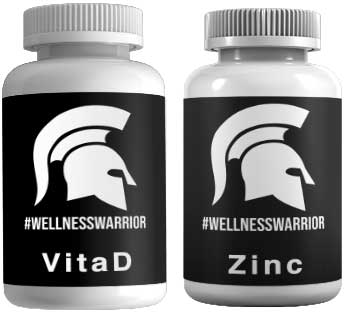The Federal Trade Commission charged St. Louis-based chiropractor Eric Anthony Nepute and his company Quickwork LLC with violating the COVID-19 Consumer Protection Act and the Federal Trade Commission Act, by deceptively marketing products containing vitamin D and zinc as scientifically proven to treat or prevent COVID-19. This is the first case the FTC has brought under the new law.
In a federal complaint filed by the U.S. Department of Justice on the FTC’s behalf, the Commission is asking the court to exercise a provision of the new law to impose monetary penalties on Nepute and Quickwork, and to grant a preliminary injunction against the defendants. According to the complaint, the defendants marketed the vitamin D and zinc products under the brand name “Wellness Warrior,” and claimed that they were as, or more, effective than vaccines that are currently available.
In addition to monetary penalties, the complaint seeks to bar the defendants from making such health claims unless they are true and can be substantiated by competent and reliable scientific evidence. The Commission also seeks to bar the defendants from falsely claiming to have scientific evidence about the effects of vitamin D and zinc on COVID-19.
“The defendants’ claims that their products can stand in for approved COVID-19 vaccines are particularly troubling: we need to be doing everything we can to stop bogus health claims that endanger consumers,” said Acting Chairwoman Rebecca Kelly Slaughter. “With this case, the Commission has quickly put to use its new authority to stop false marketing claims related to the pandemic.”
According to the FTC's complaint, in May 2020, the FTC sent a letter to Nepute warning him about unsubstantiated COVID-19 efficacy claims that he was making for other products. The letter advised him to review all other claims for products he was selling and to stop making claims not supported by competent and reliable scientific evidence. Despite receiving the warning letter, Nepute continued marketing vitamins and mineral products – specifically Wellness Warrior vitamin D and zinc – as proven immunity boosters that effectively treat or prevent COVID-19 and offer equal or better protection from the disease than currently available vaccines.
According to the complaint, Nepute and Quickwork baselessly claimed that “COVID-19 Patients who get enough vitamin D are 52% less likely to die,” that people who get enough vitamin D are 77 percent less likely to get the disease, and that Wellness Warrior Vita D is more effective at preventing the disease than approved vaccines. The FTC also alleged that defendants claimed, without substantiation, that Wellness Warrior Zinc treats or prevents COVID-19 and it is scientifically proven to work. The complaint alleges that the defendants falsely claimed that they had evidence that zinc is equally or more effective than currently available vaccines at preventing COVID-19.
Congress passed the COVID-19 Consumer Protection Act in 2020, making it illegal under the FTC Act to engage in deceptive marketing related to the treatment, cure, prevention, mitigation, or diagnosis of COVID–19, or any government benefit related to COVID-19. The law also authorizes the FTC to seek civil monetary penalties for first-time violations, a remedy not normally available under the FTC Act.
The Commission vote to refer the civil penalty complaint to the DOJ for filing was 3-1, with Commissioner Christine S. Wilson voting no. The DOJ filed the complaint in the U.S. District Court for the Eastern District of Missouri, Eastern Division.
NOTE: The Commission refers a complaint for civil penalties to the DOJ for filing when it has “reason to believe” that the named defendants are violating or are about to violate the law and that a proceeding is in the public interest. The case will be decided by the court.
The Federal Trade Commission works to promote competition and protect and educate consumers. The FTC will never demand money, make threats, tell you to transfer money, or promise you a prize. Learn more about consumer topics at consumer.ftc.gov, or report fraud, scams, and bad business practices at ReportFraud.ftc.gov. Follow the FTC on social media, read consumer alerts and the business blog, and sign up to get the latest FTC news and alerts.
